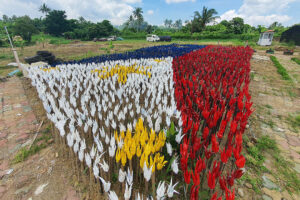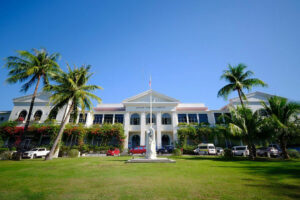PHL unprepared for RCEP — agriculture groups

A coalition of agriculture stakeholders on Wednesday urged the Senate to reject the Regional Comprehensive Economic Partnership (RCEP), saying the Philippines is unprepared for such a trade deal.
“Joining RCEP is like entering the Olympics of boxing… You have players like Australia, New Zealand. These are heavyweights, not just agriculturally but also industrially,” Leonardo Q. Montemayor a former agriculture secretary, told a televised briefing in mixed English and Filipino.
Mr. Montemayor said that Filipino farmers will have a hard time competing due to a lack of cold storage and irrigation facilities.
“Papasok ka, hindi ka preparado (It’s like entering the arena unprepared),” he added.
The Philippine Senate failed to ratify RCEP — touted as the world’s largest free trade agreement — last year, with senators citing the lack of safeguards for agriculture.
It is currently with the Senate Committee on Foreign Relations chaired by Senator Maria Imelda Josefa R. Marcos.
The trade deal started coming into force in the various jurisdictions on Jan. 1 last year. The participating countries include the 10 members of the Association of Southeast Asian Nations, Australia, China, Japan, South Korea, and New Zealand.
It is seen to help attract more investors, but Mr. Montemayor said it is akin to throwing Filipino farmers off a cliff if they are not given the tools they need to be competitive.
According to Elias Jose M. Inciong of the United Broiler Raisers Association, liberalization only benefits those with huge capital and the ability to import.
“What happened to the consumer?” he asked. “Nawalan ng trabaho, naging (They lost their jobs and became) OFWs.”
“NEDA (National Economic Development Authority) has to be humble enough to acknowledge that they failed. Until this happens, the suffering will continue.”
For his part, Rene E. Ofreneo of the Freedom from Debt Coalition said the Philippines could become a “Republika ng Ukay-Ukay,” referring to the secondhand goods from North America and Europe that fill local thrift shops.
“‘Yung ukay sa damit naging ukay sa surplus, kaya namatay ang industriya ng machine shops, ng fabrication (The proliferation of secondhand clothes led to the proliferation of surplus goods. This is how our machine shops, our fabrication industry, died),” he added.
Proponents of trade liberalization have been pushing for the adoption of RCEP, saying it complements the government’s economic agenda.
“Para manalo tayo, kailangan ready ang army, ang industry (For us to win, we need to prepare our army, our industry),” Mr. Ofreneo said. — Patricia B. Mirasol




